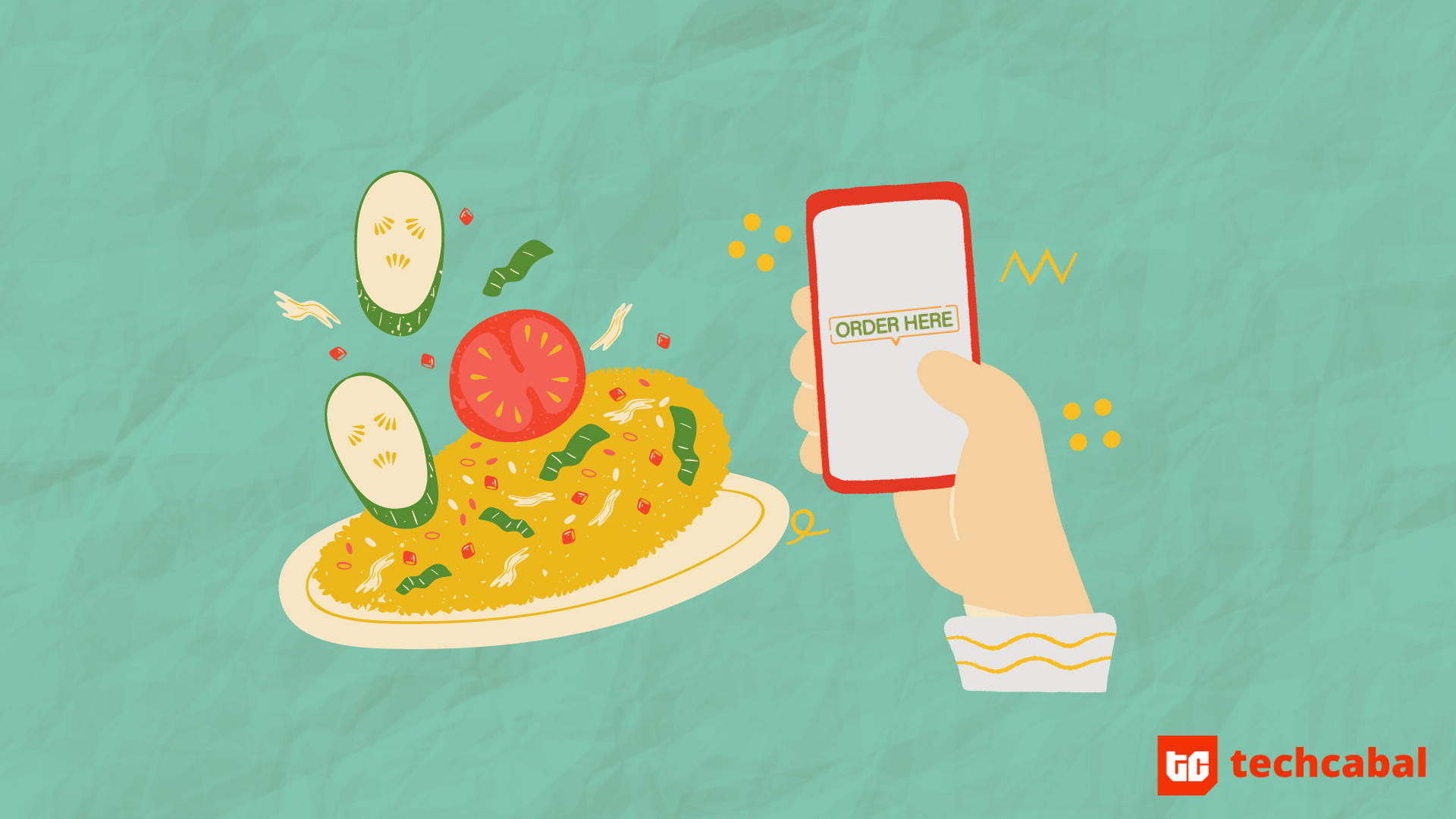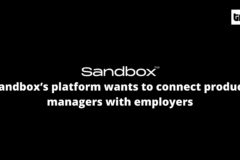The BackEnd explores the product development process in African tech. We take you into the minds of those who conceived, designed and built the product; highlighting product uniqueness, user behaviour assumptions and challenges during the product cycle.
—
Regular viewers of GQ‘s “10 essentials” are used to seeing the celebs go lyrical about their shampoos, airpods, wallets and hard drives.
Beside the episode where Nick Jonas talks delightfully about canned tuna, most guests give the sense that high-maintenance grooming products are their can’t-do-withouts.
A thrilling, binge-worthy series but surely food has to be an absolute essential for every human, even superstars?
Porridge beans is one of my life-long essentials. It doesn’t cost a Gucci bag to make a plate but there’s a high bar for how I want it served.
So when I’ve got to have it but very busy or too lazy to be in the kitchen, who can I trust?
Sometime in October, I decided to test Eden.
The Nigeria-based startup launched in mid-2019 to provide three main categories of home services; cleaning, laundry and cooked food. There have been stops and starts along the way but they look to have their product set together now.
Eden’s food service is called Choplife, a pidginised play on “enjoy life” or “live easy” branded to appeal to consumers up and down Nigeria’s socio-economic ladder.
I tried Eden’s Choplife for a month to participate in the beta test they started in September. Before signing up, they arranged a call with me to understand my preferences. I have no allergies. Yes, I have a fridge. No, no microwave.
I signed up for a plan that gave me four meals a week for ₦30,400 (~ $80) and got connected to a gardener, my personal caretaker of sorts. He would chat with me on WhatsApp on Thursdays or Fridays to select my four meals for the following week. Meals arrived on Tuesdays between 10 and 11am, hand-delivered by a Gokada rider.
Food tastes are subjective. I enjoyed the rice meals more than the beans (because I rate my own beans very highly). The soups were good; some portions remain in my fridge as of press time.
My curiosity with Choplife is how the process works behind the scenes. What assumptions have they made about consumer food habits, and what secret sauce differentiates them in a food space that is about to become competitive?
Not a food delivery service
In Lagos, you can order food directly from hundreds of small restaurants by calling or sending a message to their dedicated phone numbers or WhatsApp business accounts.
Jumia Food and GShop aggregate restaurants for home delivery too.
But the people at Eden say they are not a food delivery service.
Where food delivery services only get food from kitchen to consumer, Eden takes responsibility for the entire food process; procurement, preparation, and delivery.
For them, the play is leveraging internal control of the chain to ensure quality, offer variety and lock a large customer base in.
At the moment, there are 170+ meal suggestions on Choplife. Soups, sauces and salads. Pastas and pastries. Because users will order monthly meal plans, the company can make efficient cost calculations on how to assemble materials and deliver meals.
Users choose how often they want to receive the meals; daily, weekly or twice a month. This ‘automation’ instills structure and a sense of responsibility.
There’s a personal touch to Choplife as well. Though users can sign up on an app, chats about food with gardeners happen on WhatsApp, tapping into an already familiar platform.
Each gardener is expected to establish a relationship with the user, acting as an assurance that the meal is prepared by real people. It is supposed to produce a familial effect different from receiving food from random delivery men.
“Our concierge service creates an existing relationship between the gardeners and customers, which means there’s someone who can select your meals for you. So, if you do not want to, it’s not a decision that you have to make,” Eden said in a description of their service, to TechCabal.
But who is Choplife for?
When Eden launched last year, TechCabal was concerned about the cost of the services.
The kind of person who orders monthly laundry and home cleaning services is in the middle-to-high income bracket. There’s not many of them in Nigeria as a whole, not to speak of Lagos where the startup is testing the waters.
Speaking of food, Nigeria’s food inflation has risen 110.5% between September 2015 and September 2020. That means more and more people are going to make tough decisions about how much they can spend on food, considering other necessities and another recession.
So their target market is not everyone who eats in Lagos. The potential Choplife customer, in Eden’s thinking, has a smartphone and is too busy to spend time on cooking.
In the startup’s early days, they assumed the food service would only be demanded by single people. But they have received requests from “several couples and families,” particularly for soup and stew.
“We even get asked to do things outside our standard product offerings.”
In other words, Choplife’s structure could appeal to families of working parents who can trust that someone is taking care of their household’s food needs, without them having to actively think about the specifics everyday. It’s like a human-mediated direct debit system for food.
For society, it could reduce the need for house helps, curbing the potential abuses that tend to occur.
But Eden assumes users have reliable means of storage, don’t they? Well this is their response to that:
We discovered that wasn’t a decision-making factor. Rather, our customers make decisions based on a combination of pricing and job type. People who work remotely, or who are at home a lot, love getting the food every day.
On the other hand, those who work outside their homes prefer to stock their food for the week.
It seems this group who work outside the home must still need storage though, at least a refrigerator. And not having a microwave to easily heat the food – seeing as they are busy – might be a factor for some people in choosing whether to subscribe or not.
Whatever be the case with storage, Choplife’s price doesn’t seem prohibitive. At ₦1,600 (~$3) for the average meal, it compares well with just about any food delivery service.
Emphasizing this unit price in their communication to customers has helped win conversions, as against the scarier monthly plan prices.
Experimenting and learning
Eden 1.0 was an attempt to aggregate partners to deliver the three flagship services to customers. The pilot worked with laundry and cleaning but it failed with food.
“We realized that we could not offer food customers a consistently enjoyable experience.”
They also tried to offer free trials, but that produced a 20% conversion rate that they didn’t consider ideal.
Since tweaking the model to take control of quality and delivery, growth has come from word of mouth advertising from happy customers. Their beta test in September, which required users to book a demo, saw a 53% conversion rate.
We don’t know how many people participated. It’s safe to say Choplife is still work in progress but it’s mission of “giving people good food on time, all the time” seems well defined and backed by a workable structure.
Perhaps it helps that the startup is run by software engineers. The supply team is led by Gbenga Osowe, who’s had operations roles at OPay and Andela. Prosper Otemuyiwa, one of their three co-founders and an Andela alum, leads the engineering of their consumer-facing and backend customer relationship management tools.
Another co-founder Silm Momoh and Damola Adegoke are responsible for the colourful design on the website. All the meals on the website are pictures of actual meals prepared at their facility. Their team of chefs is headed by Chef Kabir who’s worked with 2 Michelin star kitchens in France.
Eden is a first-mover in the space they are playing, which comes with uncertainty about survival. As society evolves, people will often modify how they choose to eat what they eat.
Technology will make many alternatives possible, nudging users to port and try other things. Eden’s challenge is assuring that not only do they give users good food on time, they will be there when users’ palates evolve.





















